|
Books Should Be Free Loyal Books Free Public Domain Audiobooks & eBook Downloads |
|
|
Books Should Be Free Loyal Books Free Public Domain Audiobooks & eBook Downloads |
|
Fiction |
|---|
|
Book type:
Sort by:
View by:
|
By: Booth Tarkington | |
|---|---|
 Penrod
Penrod
Join Penrod Schofield and his wistful dog Duke, in a hilarious romp through turn of the century Indianapolis, chronicling his life, loves, and mostly the trouble he gets into. | |
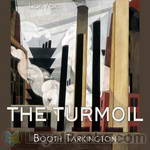 The Turmoil
The Turmoil
The Turmoil is the first novel in the ‘Growth’ trilogy, which also includes The Magnificent Ambersons (1918) and The Midlander (1923, retitled National Avenue in 1927). In 1942 Orson Welles directed a film version based on volume 2, also titled “The Magnificent Ambersons.” The trilogy traces the growth of the United States through the declining fortunes of three generations of the aristocratic Amberson family in a fictional Mid-Western town, between the end of the Civil War and the early part of the 20th century, a period of rapid industrialization and socio-economic change in America... | |
 The Gentleman from Indiana
The Gentleman from Indiana
| |
 The Two Vanrevels
The Two Vanrevels
| |
 His Own People
His Own People
| |
 Ramsey Milholland
Ramsey Milholland
| |
By: Gideon Wurdz (b. 1875) | |
|---|---|
 The Foolish Dictionary
The Foolish Dictionary
“The Foolish Dictionary” was written by “Gideon Wurdz” and was published in 1904. According to the beginning of the book, it is “An exhausting work of reference to un-certain English words, their origin, meaning, legitimate and illegitimate use…” This a a short but amusing dictionary which “redefines” words in some interesting ways. Funny and sometimes bizarre observations are sprinkled throughout. In keeping with the policy to read, rather than attempt to rewrite, books – even those with offensive content – nothing has been omitted... | |
By: Heinrich Hoffmann (1809-1894) | |
|---|---|
 Slovenly Betsy
Slovenly Betsy
Hienrich Hoffmann was a German psychiatrist and doctor. He had written poetry and sketches for his son, and was persuaded to have a collection of these printed.The stories were not perceived as cruel or overly moral by Hoffmann's contemporaries.This American version contains a few of the stories from the original German "Struwwelpeter" publication. | |
By: Alphonse Daudet (1840-1897) | |
|---|---|
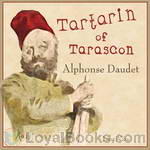 Tartarin of Tarascon
Tartarin of Tarascon
It tells the burlesque adventures of Tartarin, a local hero of Tarascon, a small town in southern France, whose invented adventures and reputation as a swashbuckler finally force him to travel to a very prosaic Algiers in search of lions. Instead of finding a romantic, mysterious Oriental fantasy land, he finds a sordid world suspended between Europe and the Middle East. And worst of all, there are no lions left. | |
 The Immortal Or, One Of The "Forty." (L'immortel) - 1877
The Immortal Or, One Of The "Forty." (L'immortel) - 1877
| |
 The Nabob
The Nabob
| |
 Tartarin De Tarascon
Tartarin De Tarascon
| |
 Tartarin On The Alps
Tartarin On The Alps
| |
 Fromont and Risler
Fromont and Risler
| |
By: George Bernard Shaw (1856-1950) | |
|---|---|
 Mrs. Warren's Profession
Mrs. Warren's Profession
The story centers on the relationship between Mrs Kitty Warren, a rich woman, described by the author as "on the whole, a genial and fairly presentable old blackguard of a woman" and her daughter, Vivie. Mrs Warren is a middle-aged woman whose Cambridge-educated daughter, Vivie, is horrified to discover the morally questionable way her mother acquired her fortune. | |
By: Katherine Mansfield (1888-1923) | |
|---|---|
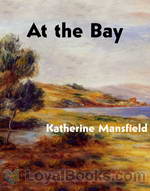 At The Bay
At The Bay
Katherine Mansfield was a prominent Modernist writer of short fiction, and one of New Zealand’s best-known authors. “At the Bay” is a story from her collection The Garden Party. | |
 Prelude
Prelude
One of the first books to be published by Leonard & Virginia Woolf's Hogarth Press, Prelude is among Katherine Mansfield's most accomplished stories, inspired by her childhood in New Zealand. (Introduction by iremonger) | |
By: Helen Hunt Jackson (1830-1885) | |
|---|---|
 Letters from a Cat
Letters from a Cat
Letters from a Cat: published by her mistress for the benefit of all cats and the amusement of little children is a collection of letters that a little girl receives from her pet while she is away from home. They tell of her pet’s adventures and misadventures. The book includes a preface which gives a little biography of the cat including its sad demise. H.H. was the alias of Helen Maria Hunt Jackson (1830 –1885) who is better known for her novel Ramona in which she dramatized the mistreatment of Native Americans and which formed part of her campaign for improved treatment of Native Americans by the U.S. Government. | |
 The Hunter Cats of Connorloa
The Hunter Cats of Connorloa
| |
 Hetty's Strange History
Hetty's Strange History
| |
 Hetty's Strange History
Hetty's Strange History
| |
By: Isabella Alden (1841-1930) | |
|---|---|
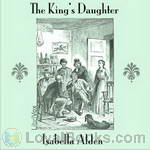 The King's Daughter
The King's Daughter
Dell Bronson has been reared in Boston by her refined uncle and aunt until, at age 18, she is called home by her father, a coarse tavern owner in Lewiston. As a daughter of the heavenly King, she strives to honor her heavenly Father by wooing her earthly father to Christ and away from rum. Set in the era of the temperance movement of the 1800’s. Authored by Isabella M. Alden under the pen name “Pansy.” Third in the Ester Ried series. | |
 Ester Ried
Ester Ried
Authored by Isabella M. Alden under the pen name “Pansy.” Ester Ried’s life is a dull monotony of toiling at her family’s boardinghouse. She’s overworked, jealous and cranky, a poor example of a Christian to her family and associates. She awakens to a new attitude and commitment due to an extended visit with her cousin. | |
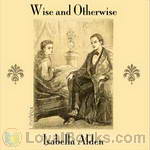 Wise and Otherwise
Wise and Otherwise
Immature Mr. Tresevant (from “The King’s Daughter”) comes to Newton with his spoiled wife to be the new pastor of the church attended by Dr. and Mrs. Douglass, Mr. and Mrs. Sayles, and Mr. and Mrs. Tyndall (from “Ester Ried” and “Julia Ried”), boarding with Jerome and Abbie Sayles. Authored by Isabella M. Alden under the pen name “Pansy.” Fourth in the Ester Ried series. | |
 Julia Ried
Julia Ried
Authored by Isabella M. Alden under the pen name “Pansy.” Sequel to “Ester Ried.” Julia Ried must take a job as a bookkeeper in a factory to earn a living. The mistress of her boardinghouse influences her in a negative way, drawing her into a life and attitude displeasing to God. Will her family and friends be able to convince her stand up for what’s right? | |
 Four Girls at Chautauqua
Four Girls at Chautauqua
Authored by Isabella M. Alden under the pen name “Pansy.” First in the Chautauqua Girls series. Four friends – spoiled, quirky Ruth; fun-loving and mischievous Eurie; poor, independent and brainy Marion; and meek, approval-seeking Flossy – attend Chautauqua on a lark, and their lives are changed forever. (Chautauqua is an adult education movement in the United States, highly popular in the late 19th and early 20th centuries. The Chautauqua brought entertainment and culture for the whole community, with speakers, teachers, musicians, entertainers, preachers and specialists of the day.) | |
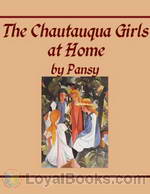 The Chautauqua Girls at Home
The Chautauqua Girls at Home
Sequel to Four Girls at Chautauqua. Ruth, Flossy, Eurie, and Ruth return home as new Christians, eager to begin working. Their new faith clashes with their old lives, which they must overcome, as well as the prejudices of friends and acquaintances. | |
 Ester Ried's Namesake
Ester Ried's Namesake
Ester Ried Randall tries to live up to her parents’ expectations and the name she’s been given, but her religion is a chore. Will she learn the lesson of faith that Ester did? Fifth and final book in the Ester Ried series. Authored by Isabella M. Alden under the pen name “Pansy.” | |
 Judge Burnham's Daughters
Judge Burnham's Daughters
Fifth in the Chautauqua Girls series. Ruth Erskine Burnham has helped raise her husband’s two daughters, but all have rejected her faith and values. The constant pressure to compromise has weakened her walk and made her life miserable. Her one comfort is her somewhat sickly 5 year old son. Will she return to the strong faith of her young womanhood, and will her family finally follow? | |
 Ruth Erskine's Crosses
Ruth Erskine's Crosses
Third book in the Chautauqua Girls series. Written by Isabella Alden under the pseudonym “Pansy.” Ruth’s father brings home a wife and daughter, after 18 years, that Ruth had never known about. Suddenly she is no longer the queen of her home. And what’s worse, the new mother and sister are rude and antagonistic. How will Ruth bear this cross? | |
By: Guy de Maupassant (1850-1893) | |
|---|---|
 Ball-of-Fat
Ball-of-Fat
The first significant published short story of French author Guy de Maupassant, and generally acknowledged as his greatest work, “Ball-of-Fat” (French title: Boule de Suif) is the touching story of an interrupted coach ride from Rouen to Le Havre during which occurs the corruption of a principled prostitute by immoral and hypocritical members of the upper class. The story is set during the occupation of Rouen at the time of the Franco-Prussian War. | |
 Bel Ami, or The History of a Scoundrel
Bel Ami, or The History of a Scoundrel
“He had faith in his good fortune, in that power of attraction which he felt within him - a power so irresistible that all women yielded to it.”Though firmly set in 1880s Paris, Maupassant's gripping story of an amoral journalist on the make could, with only slight modifications of detail, be updated to the 1960s, to the Reagan-Thatcher years, or maybe to the present day. Anti-hero Georges Duroy is a down-at-heel ex-soldier of no particular talent. Good-looking but somewhat lacking in self-confidence, he discovers an ability to control and exploit women - whereupon his career in journalism takes off, fuelled by the corruption of colleagues and government arrivistes... | |